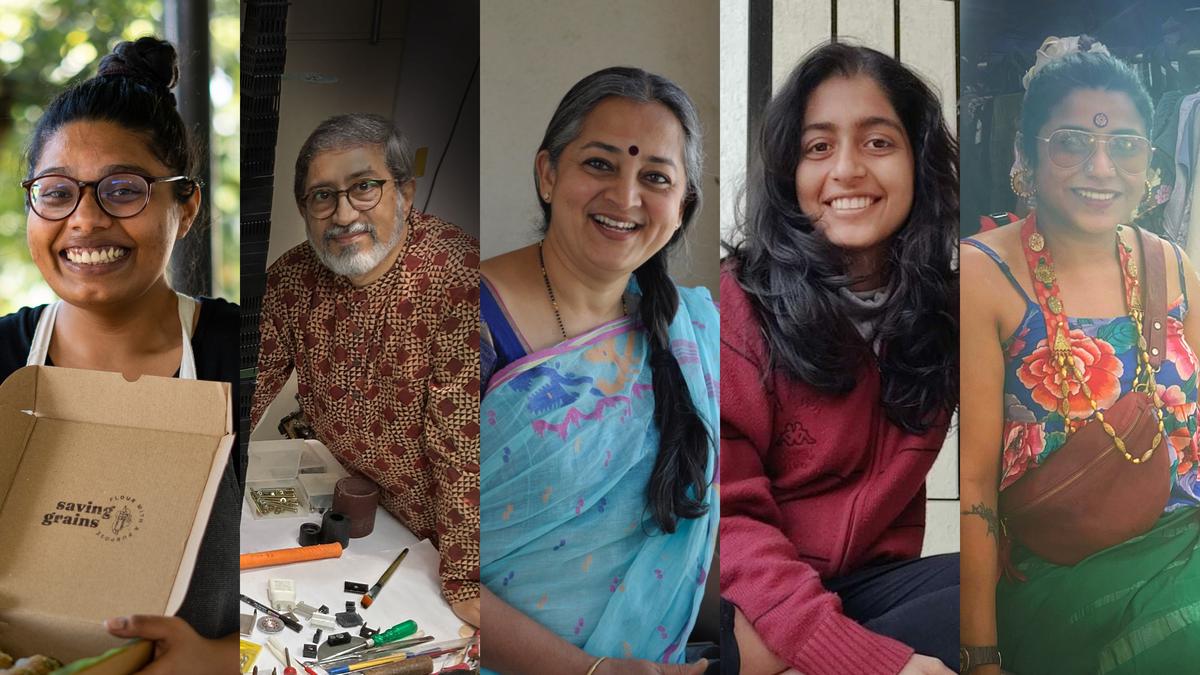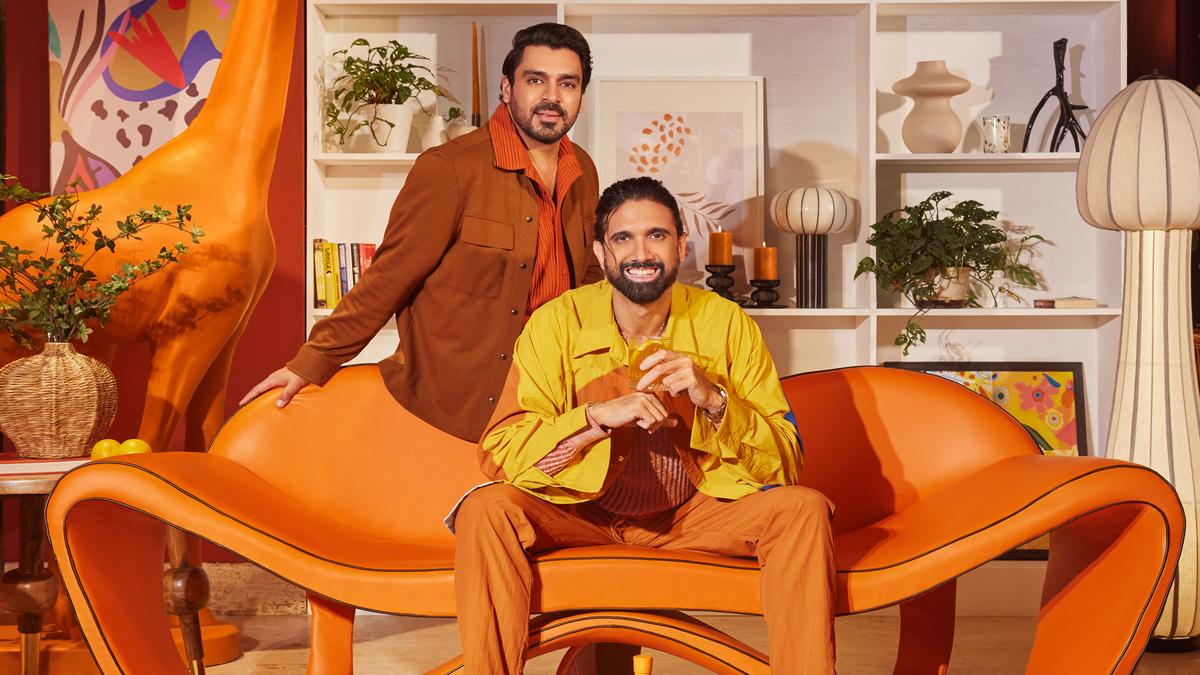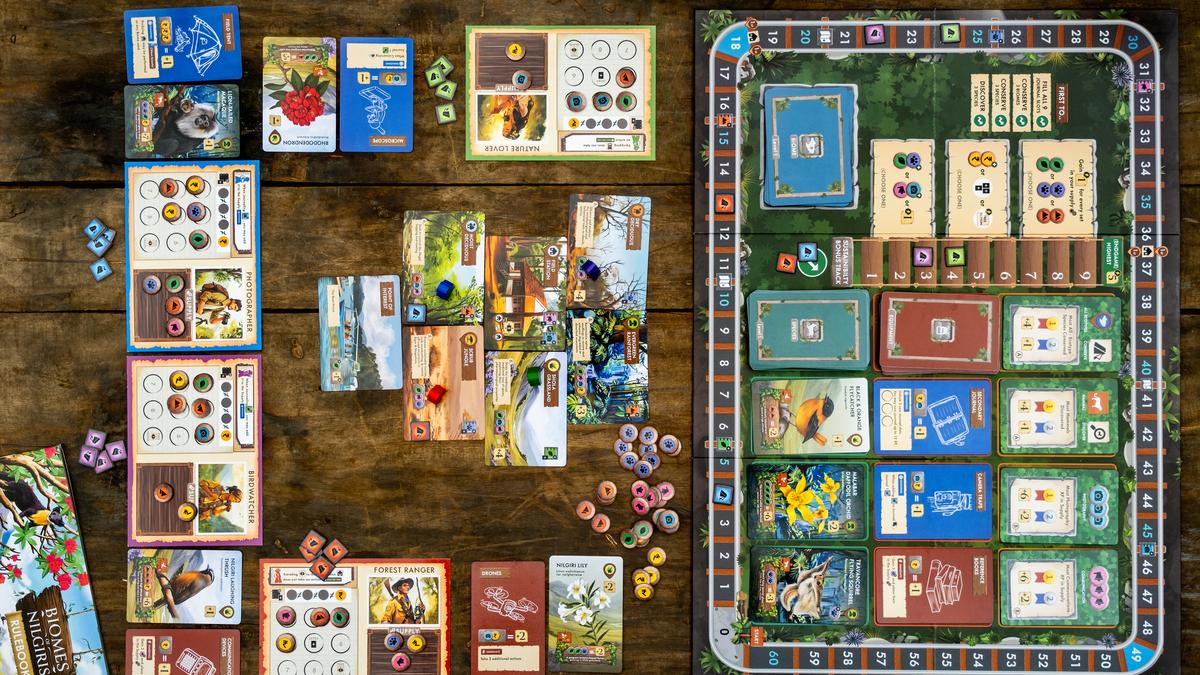In the bustling city of Bengaluru, where urban growth and development often take centre stage, a silent revolution is underway. A growing number of individuals have emerged as passionate advocates for sustainability, dedicating their time, energy, and resources to create positive change within their communities. From eco-entrepreneurs to e-waste artists, these individuals have embraced the urgent need to protect the environment and promote sustainable practices in the city. Through their unwavering commitment, innovative ideas, and tireless efforts, they are redefining the way we live, work, and interact with our surroundings.They address diverse aspects of sustainability such as waste management,sustainable fashion and food, and more.
Mrudula Joshi
Mrudula Joshi runs Ullisu (which means ‘to save’ in Kannada), an online platform that promotes minimising waste generation. Apart from being a marketplace for sustainable products and brands, the platform also helps people transition into a zero-waste lifestyle. Ullisu has also collaborated with another sustainability organisation, Wasted 360 Solutions, for a physical space in Indiranagar, which acts as a market for zero-waste products, a thrift store, and a waste collection centre.
Mrudula’s sustainability journey started six years ago when she worked as a designer after graduating from the National Institute of Fashion Technology in 2017. Inspired by minimalism, she sought to transform her way of living. The idea of a ‘zero-waste lifestyle’ appealed to her. “Within a year, the amount of waste I created was so little that it would go just once in six months.”
She wants Ullisu to be the go-to place for people who seek guidance on zero-waste. “We already counsel corporates and individuals on this. We would like to scale that up in the coming years. In India, people are still reluctant to pay for sustainable services. So, we are still figuring out how to grow.”
To know more, follow Ullisu’s Instagram page (ullisu.official)
Vishwanath Mallabadi
Cursorily glancing at a small thumbnail of Vishwanath Mallabadi’s recreation of the Vincent van Gogh masterpiece, Starry Night, you might feel it is a modest replica of the iconic painting. A slightly closer look will immediately reveal the recreation’s own ingenuity. For, the painting’s chromatic blue swirls of the night sky, the glowing yellow crescent moon, and the stars (rendered as radiating orbs) are all made up of discarded resistors! And this is just one of Vishwanath’s 600-plus artworks made of e-waste.
Art has always been a part of his life since his father, the late D M Shambhu, was a painter and sculptor. He found the innards of electronic devices fascinating. These two interests led him to create art from electronic trash. Though Vishwanath saw this as a purely artistic endeavour, he slowly realised the environmental impact of it.
Vishwanath, however, reckons sustainability cannot merely be an individual responsibility. According to a United Nations report, more than 53 million tonnes of e-waste was generated worldwide in 2019. What if all this waste can be upcycled into art? “The government spends a lot on statues, souvenirs, and mementoes. All of this could be made from e-waste, thereby minimizing the allocation of substantial resources towards conventional materials such as wood or plastic.”
To know more, follow Vishwanath Mallabadi on Instagram (the.upcycle.store)
Vani Murthy
Everything starts at home and in a small manner. That is what comes to mind when you speak to Vani Murthy.
Vani, who is a homemaker, says visiting a landfill with her friends was a turning point in her life. “The amount of waste generated in and around Bengaluru and what it was doing to the environment was scary. We started organising campaigns on social media in 2007 to make people aware of it.”
“The idea was to get them to say no to landfills and segregate waste at home. Sixty % of waste comes from your kitchen, which you can compost. So we started organising workshops to teach people composing.”
To promote waste segregation, her group launched a campaign called Two Bins, One Bag, wherein people were encouraged to keep three different bins: blue (for dry waste), green (for wet waste), and red (for biomedical waste). “In fact, it was our group, Turntable, which got the court mandate for waste segregation,” she says.
Her group also launched the Swacha Graha campaign, encouraging people to start composting. “Once they start composting, they could later make their own soil and grow their own pesticide-free food on their balconies and terraces. Once you start growing your own food, it changes your lifestyle.”
To know more, follow Vani Murthy on Instagram (wormrani).
Meghna Khanna
“Today fashion is going out of style. How do we keep up?” asks personal stylist Meghna Khanna, who runs The Preloved Co, a Bengaluru-based thrift store, who believes that finding your style and sticking to it is the best way. Thrifting, she adds, is a great way to step away from the homogenous ideas of style that fast fashion often imposes. “Our collection (online or at a pop-up) is highly curated. I sift through it personally and only select the good stuff.” says Meghna.
While Meghna, who used to run the Levitate boutique in Indiranagar, had already adopted a sustainable production method, she realised it was about new products coming into the space. “The pandemic made me realise that we had so much more than any generation before us.”
Around the same time, her friend Mariam Begg, who had started Preloved Co in 2017, changed paths professionally. “So, I took over from her in 2021,” says Meghna, who hopes to take Preloved to corporates and IT parks “to show them what this can be.”
Thrifting, she says, is not about money but a mindset and a conversation. “It is an evolving space, and we want to take this conversation forward.”
To know more, follow The Preloved Co’s Instagram page (the.preloved.co)
Elizabeth Yorke
Elizabeth Yorke, a chef and sustainability advocate, is turning the tide on food waste with her company, Saving Grains. By harnessing the power of upcycling, she aims to breathe new life into the spent grain, a byproduct of beer brewing, and change the way communities approach food consumption and sustainability.
During her 2016 internship with William Rubel, a renowned food historian and author of Bread: A Global History, Elizabeth discovered the historical collaboration between brewers and bakers. They shared common ingredients like grain, yeast, and water. Bakers provided leftover bread to brewers for fermentation, while brewers gave bakers spent grain and yeast to make bread. This connection inspired her next steps in Bengaluru.
Collaborating with Geist Brewing Co. and Biergarten, she upcycled malted grain into consumables rich in fibre and protein. From pasta, crackers, and brownies to granola and cookies, her creations not only reduce waste but also offer a nutritious alternative.
She set up her first micro-upcycling kitchen prototype in a community centre called Kutumba in Doddagubbi. Here, the community members receive flour from Saving Grains that are turned into chapatis for consumption or sale.
“We also organise cooking and baking classes at Kutumba, and it’s truly heartening to witness a diverse audience that is so keen on learning,” she shares.
“We want to build an ecosystem around upcycling food, where everyone involved plays a vital role,” she says. Her collaborative model engages community centres, breweries, and other stakeholders to create a comprehensive approach to waste reduction and community empowerment.
To know more, follow Saving Grains on Instagram (savinggrains)




.jpg)

